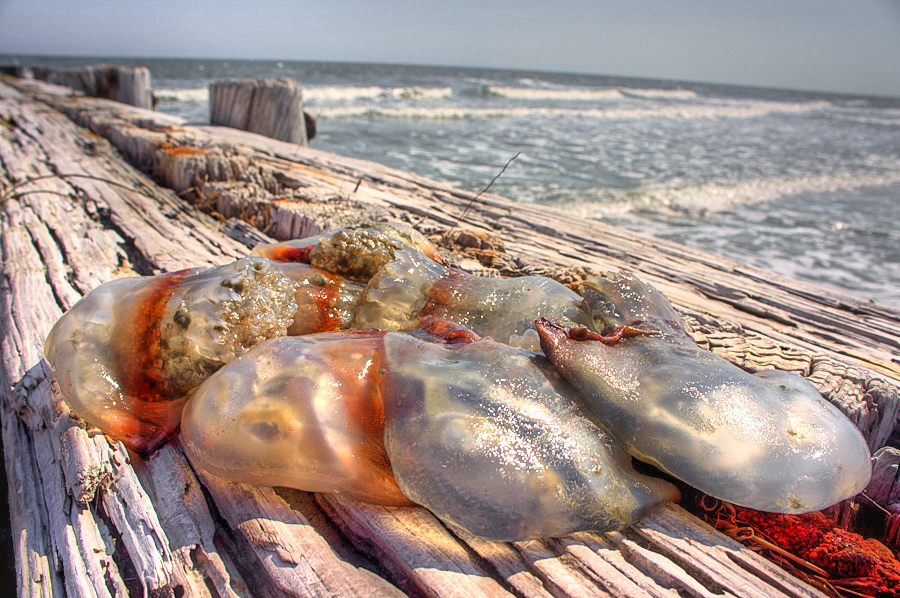Beware of Jellies at Charleston Beaches
Recently, there has been an abundance of various species of jellyfish spotted at Charleston beaches. Hundreds of sitings are reported daily by local Beach Services.
However, the main concern is the dangerous and deadly Portuguese Man-of-War. At least twenty of these jellies washed up this past Tuesday on Folly Beach and over one hundred washed up between Folly, Isle of Palms, Kiawah, Seabrook Island, and Hilton Head.
Myrtle Beach, Sullivan’s Island, and Edisto have not yet reported sitings of the Man-of-War. Beach officials in these locations are still warning beachgoers to keep an eye out for the jellies.
Farther South in Georgia, a bloom of Portuguese Man-of-War was seen floating close to shore and beaches had to be evacuated in order to eliminate the potential risk of people getting stung.
The beautiful colors of the Man-of-War attract curious prey and lure people to get a closer look. However, contact with this creature can be deadly.
So far, only one person in the Charleston area has been stung by the Man-of-Wars’ poisonous tentacles this season. Luckily, the 40 year old woman who was stung was treated at the beach and is recovering from her injuries.
The Department of Natural Resources and the Marine Resources Division are working to control the situation and hopefully relocate the dangerous creatures to offshore. In doing this, beachgoers will be safe from getting stung and the jellyfish will be safe from getting tumbled in crashing waves and washing ashore.
Blooms of Man-of-Wars can reach over one thousand jellyfish and are extremely dangerous if they come close to populated beaches. They usually float along with the currents and wind, so it is difficult for officials to determine where the blooms are located and where they are headed.
Understanding the biology of Man-of-Wars is important in protecting ourselves from stings. This particular jellyfish is a siphonophore, which means it is made up of group of organisms that function together as one unit. The four main organisms are the pneumatophore, tentacles, digestive organisms, and reproductive organisms. The pneumatophore is the purple-blue bladder that floats on top of the ocean water and entices prey. The tentacles of the Man-of-War are very fine and long and can be over 165 feet long, the average length is 30 feet. Their sting sends a paralyzing poison into its victim.
This summer it is important that beachgoers beware of purple-blue floating bladders. If you do come across a Portuguese Man-of-War it is important that you alert beach officials or lifeguards so that they can assess the situation and keep the waters safe for swimmers.








